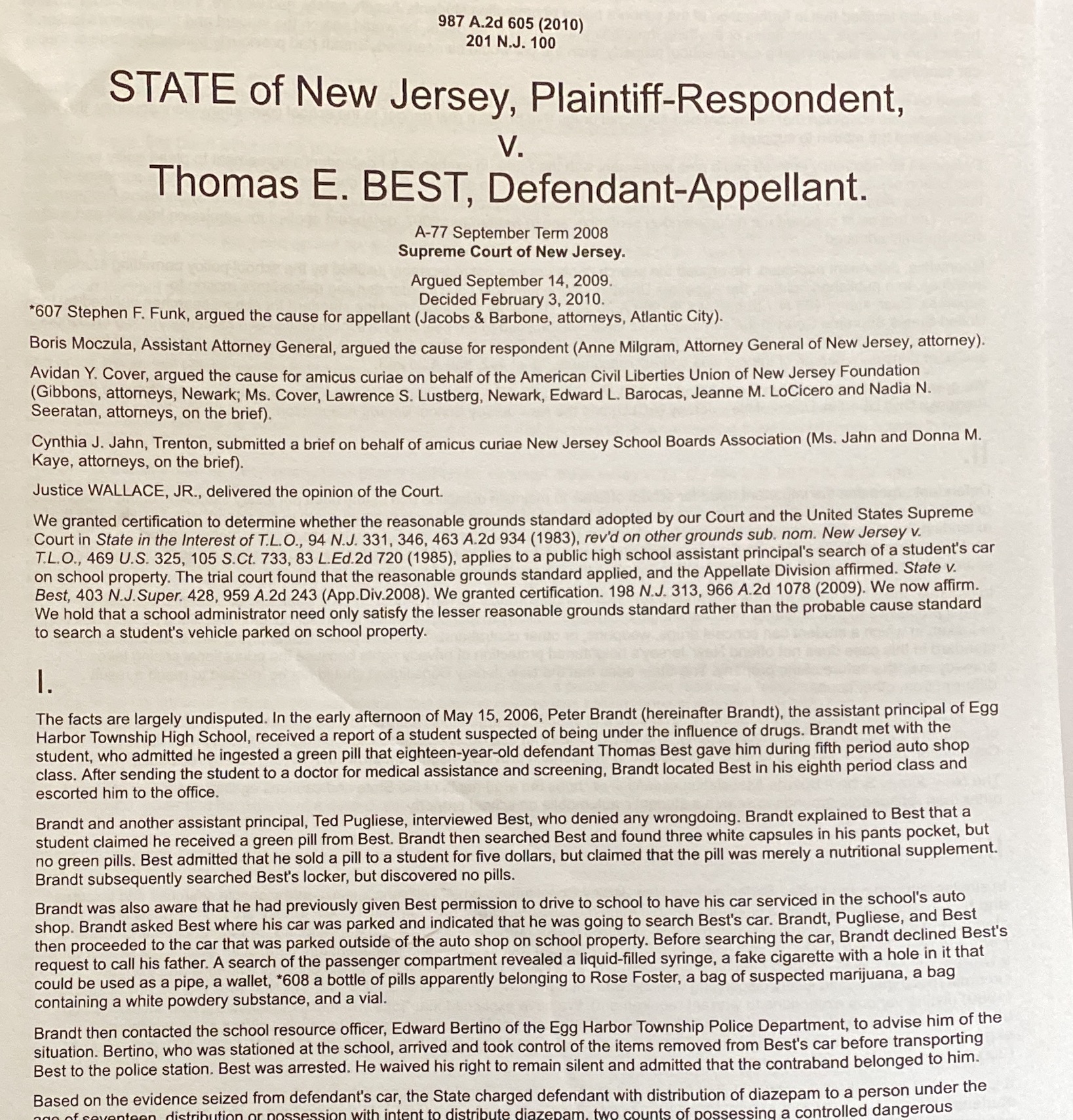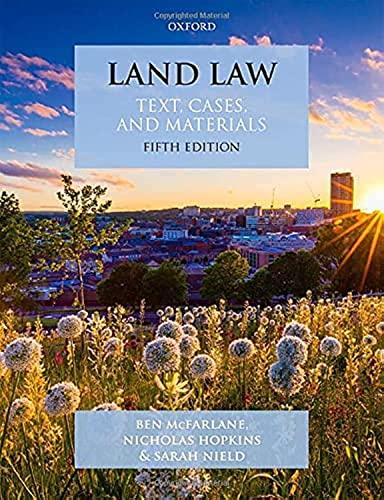What is the correct answer for legal brief for this case , please ?
987 A.2d 605 (2010) 201 N.J. 100 STATE of New Jersey, Plaintiff-Respondent, V. Thomas E. BEST, Defendant-Appellant. A-77 September Term 2008 Supreme Court of New Jersey. Argued September 14, 2009. Decided February 3, 2010 *607 Stephen F. Funk, argued the cause for appellant (Jacobs & Barbone, attorneys, Atlantic City). Boris Moczula, Assistant Attorney General, argued the cause for respondent (Anne Milgram, Attorney General of New Jersey, attorney). Avidan Y. Cover, argued the cause for amicus curiae on behalf of the American Civil Liberties Union of New Jersey Foundation (Gibbons, attorneys, Newark; Ms. Cover, Lawrence S. Lustberg, Newark, Edward L. Barocas, Jeanne M. LoCicero and Nadia N. Seeratan, attorneys, on the brief). Cynthia J. Jahn, Trenton, submitted a brief on behalf of amicus curiae New Jersey School Boards Association (Ms. Jahn and Donna M. Kaye, attorneys, on the brief). Justice WALLACE, JR., delivered the opinion of the Court. We granted certification to determine whether the reasonable grounds standard adopted by our Court and the United States Supreme Court in State in the Interest of T.L. O., 94 N.J. 331, 346, 463 A.2d 934 (1983), rev'd on other grounds sub. nom. New Jersey v. T.L.O., 469 U.S. 325, 105 S.Ct. 733, 83 L.Ed.2d 720 (1985), applies to a public high school assistant principal's search of a student's car on school property. The trial court found that the reasonable grounds standard applied, and the Appellate Division affirmed. State v. Best, 403 N.J. Super. 428, 959 A.2d 243 (App.Div.2008). We granted certification. 198 N.J. 313, 966 A.2d 1078 (2009). We now affirm. We hold that a school administrator need only satisfy the lesser reasonable grounds standard rather than the probable cause standard to search a student's vehicle parked on school property. 1. The facts are largely undisputed. In the early afternoon of May 15, 2006, Peter Brandt (hereinafter Brandt), the assistant principal of Egg Harbor Township High School, received a report of a student suspected of being under the influence of drugs. Brandt met with the student, who admitted he ingested a green pill that eighteen-year-old defendant Thomas Best gave him during fifth period auto shop class. After sending the student to a doctor for medical assistance and screening, Brandt located Best in his eighth period class and escorted him to the office. Brandt and another assistant principal, Ted Pugliese, interviewed Best, who denied any wrongdoing. Brandt explained to Best that a student claimed he received a green pill from Best. Brandt then searched Best and found three white capsules in his pants pocket, but no green pills. Best admitted that he sold a pill to a student for five dollars, but claimed that the pill was merely a nutritional supplement. Brandt subsequently searched Best's locker, but discovered no pills. Brandt was also aware that he had previously given Best permission to drive to school to have his car serviced in the school's auto shop. Brandt asked Best where his car was parked and indicated that he was going to search Best's car. Brandt, Pugliese, and Best then proceeded to the car that was parked outside of the auto shop on school property. Before searching the car, Brandt declined Best's request to call his father. A search of the passenger compartment revealed a liquid-filled syringe, a fake cigarette with a hole in it that could be used as a pipe, a wallet, *608 a bottle of pills apparently belonging to Rose Foster, a bag of suspected marijuana, a bag containing a white powdery substance, and a vial. Brandt then contacted the school resource officer, Edward Bertino of the Egg Harbor Township Police Department, to advise him of the situation. Bertino, who was stationed at the school, arrived and took control of the items removed from Best's car before transporting Best to the police station. Best was arrested. He waived his right to remain silent and admitted that the contraband belonged to him. Based on the evidence seized from defendant's car, the State charged defendant with distribution of diazepam to a person under the g a controlled dangerous







